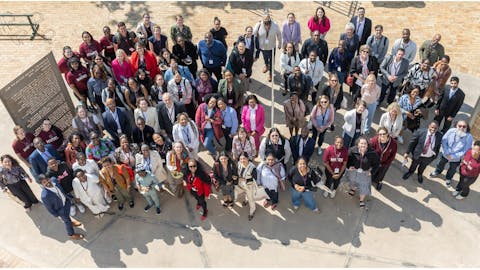

Nepal

Action against child exploitation in Nepal
Online child sexual exploitation, trafficking
Nepal, a tourist destination, is one of the most economically vulnerable nations in South Asia with high political instability.
Children in Nepal are extremely vulnerable to child labour, and sexual exploitation arising out of prevalent unsafe migration, trafficking, child marriage and online abuse. Nepal is a disaster-prone country with frequent floods, earthquakes and landslides placing children at further risk.
We protect children and prevent child exploitation through lobby and advocacy, empowering children to fight for their rights and building the capacities of stakeholders involved.
-

Thangaperumal Ponpandi
Country Director NepalThrough our projects in Nepal, we are closely working with the Government stakeholders to bring in progressive steps towards formulation of necessary laws and regulations in addressing the internet facilitated sexual abuse and exploitation of children.
Children in Nepal
About 47% of the population in Nepal is under the age of 19. Nepal is ranked 146th in the Human Development Index. Due to continued economic challenges, 21.8 per cent of children under 18 years of age are multidimensionally poor. This often makes them vulnerable to child exploitation.
Around 1.1 million children are engaged in child labour mostly in agriculture, domestic work and construction work. Nepal is also an infamous hub for trafficking where 1.5 million people are reported to be caught in the web of trafficking with children, mainly girls and ethnic minority communities, occupying a significant proportion. Unsafe migration, poverty, lack of education and gender discrimination are major contributing factors.
Exploitation is also rampant in online spaces. Nepal currently ranks 94th out of 194 countries on the Global Cyber Security Index with an exponential rise in cybercrime cases. Cases of online grooming by foreign tourists and live streaming of child sexual abuse material are major risks faced by children.
Nepal’s Ministry of Women, Children and Senior Citizens is the government body responsible for child protection. The National Child Policy sets guidelines, standards and principles for child protection in Nepal. However, there are no clear guidelines for the prevention of online child sexual exploitation of children.
Our Work in Nepal
In Nepal, we operate in the provinces of Gandaki and Bagmati, having reached 3,638 children and 751 families and communities in 2024.
We combat online child sexual exploitation (OCSE) through lobbying, advocacy, and accountable partnerships. Working with the Curriculum Development Centre and the National Association of Travel and Tour Agents (NATTA), we engage the education and tourism sectors to create safer spaces for children. We empower children and youth to raise awareness, influence policy, and strengthen law enforcement collaboration.
In 2024, the Curriculum Development Centre officially integrated our OCSE prevention curriculum into school materials and teacher training. The Internet Service Providers’ Association of Nepal (ISPAN) adopted a Standard Operating Procedure (SOP) to strengthen their child online protection measures. Additionally, the National Association of Travel and Tour Agents (NATTA) developed and endorsed a Child Protection Policy for the tourism sector, which is now being implemented in Gandaki Province.
Youth empowerment
We work closely with youth advocates and give them platforms to raise their concerns and influence policy-making decisions. In 2024, our initiatives led to 41 child and youth-led awareness-raising sessions on online child sexual exploitation (OCSE).
Peer Support Networks
We sensitise youth advocates to engage with children through peer support network groups where children learn about OCSE and how to keep themselves safe. Through these efforts, children and youth are raising awareness on OCSE prevention through peer-to-peer sessions within and beyond project areas. In 2024, 686 young people were reached with comprehensive information on sexual and reproductive health and rights (SRHR) and OCSE.
Lobby and Advocacy
We actively lobby and advocate with the government, law enforcement authorities (Cyber Authorities), school management committees and the private sector to develop policies and enact mechanisms to ensure safer online spaces for children. This includes our successful efforts to convince the Curriculum Development Centre to incorporate OCSE prevention content into school curriculum and teacher’s training guides.
Capacity Building and Sensitisation
We build the capacity of youth, law enforcement agencies, government authorities, parents, teachers and community members in addressing OCSE through sensitisation and training programmes. In 2024, we successfully trained 3,268 boys and girls on OCSE and how to report cases, and 37 government officials on safe online spaces for children.
Our partners
Funding partners
Nationale Postcode Loterij
The Nationale Postcode Loterij is the biggest charity lottery in the Netherlands. It was founded in 1989 by Novamedia, a marketing agency that sets up and runs charity lotteries.
Ministry of Foreign Affairs Netherlands
The Ministry of Foreign Affairs (BZ) in the Netherlands is committed to a fair and sustainable world.
Ignite Philanthropy
A philanthropic fund that supports bold efforts to ensure every child lives a life free from violence.







